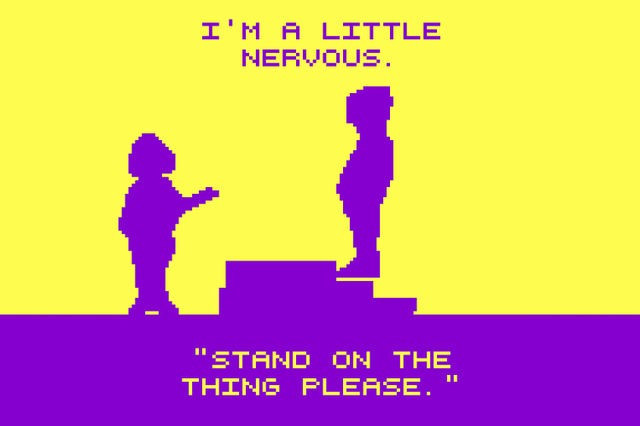Why Games Matter Blog - Why the Formalists and Zinesters are Both Wrong

Videogames Are Better than Games - Why videogames don't need analogue games for validation
The tug of war between formalists and zinesters (neatly summed up for the uninitiated this week by Gamasutra) is focused around the word 'game'.
The formalists argue that in order for something to be called a 'game' it has to have challenges and objectives and win and lose states. It has to be something with learnable mechanics which you get better at the more you play. It has to be a game in the sense of chess or backgammon or hopscotch.
Zinesters see games in more abstract terms. They champion works likes Dys4ia and Dear Esther which flex and subvert formal game tropes. For zinesters, games are about things bigger than mechanics or winning and losing. They can be used to explore politics and emotion; it's the taking part that counts. As videogames blossom into artworks, zinesters don't want the definition of 'game' to remain as reductive as it is in the Macmillan dictionary:
"An activity that you do for fun that has rules, and that you can win or lose."
Zinesters think that games can do more, and that the best way to test them is to break formal boundaries.
Contention
The contention between these two groups (which, of course, not everyone fits neatly into) stems from, as I said, the definition of 'game.' Put simply, formalists want the definition of game to remain unchanged; zinesters want it adapted to describe works like Journey.
But both camps are misguided. Rather than be interested in that word 'game', I feel like this debate should start and end with that other word, 'video.' We're looking at two completely different forms of expression here and trying to shoehorn the definition of one into the other is redundant.
We shouldn't be trying to redefine the word 'game'. We should be looking at creating a new definition for a new word: 'Videogame.'
Validation
Dear Esther and Dysi4a are not games and they don't need to be. They're something else. They're videogames.
And that's nothing to be ashamed of. Zinesters are clamouring for their works to be certified 'games' as a form of validation, as if to be a videogame is to be "merely a videogame." That low self-esteem stems, I'm sure, from the comments of mainstream press and government, which have both been contented to sideline videogames for as long as I've been alive.

But we're ready to just ignore that now I think. Videogames sell well, they make money, people like them. If this is a popularity contest, then I'd argue that nowadays videogames are much more beloved than games in the Macmillan sense. They don't need to be games by the traditional definition, or anything like it, in order to reach more people. In terms of mass-market validation, I don't see what an expanded or changed definition of 'game' would do for videogames. 'Videogame' is already a popular brand.
I also don't see why videogames have to be 'games' in order to earn artistic merit. Videogames are already artistic. In fact, I'd argue that even the trashiest game, even Call of Duty, is much more an artwork than poker or checkers. I'm probably being unfair, but I don't see the art in a game of chess. I see craft and skill and logic - I see intelligence - but I don't see artistry, at least not to the extent that I see it in visual design, sound editing and voice acting.
I actually don't know why videogame zinesters, or any videogame maker, would want to place their work on the same level as a 'game'; I don't see why they shouldn't take artistic pride in their work being a videogame, rather than a game by the Macmillan definition.
I think formalists are wrong in believing that videogames should adhere to the same terms as traditional games and that zinesters are wrong in believing that videogames, in order to be valid art forms, need to be games in the dictionary sense first. Both these arguments suggest to me an inherent low confidence in the medium. In the way that videogame writers often borrow conceits from films to, ostensibly, elevate their work, conflating videogames with traditional games seems like an effort to afford some icky, lowly regarded moniker.

But videogames are no longer lowly regarded. On their own terms, by their very uniqueness, they've become a profitable and artistic cultural form. They are not films, they are not literature and they are not games. They are videogames. They have their own tropes and language, and they don't need to borrow from other mediums to stand up.
The formalist and zinesters seem to be missing this point: It's alright for something to be a videogame.
© Copyright IBTimes 2025. All rights reserved.





















